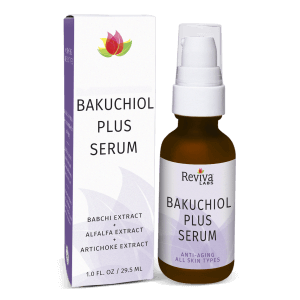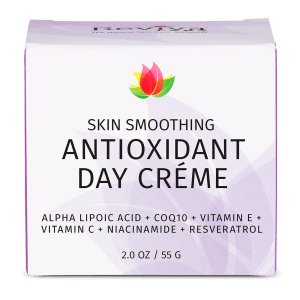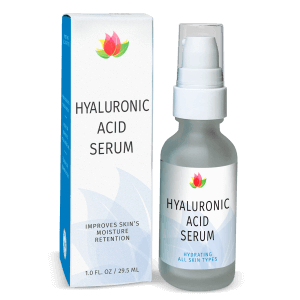Ingredients, Natural, Reviva Labs, Skin Care
The Allure of Glowing Skin: Why It’s So Universally Attractive
There’s something captivating about glowing skin, isn’t there? It’s that unmistakable radiance that turns heads, sparks compliments, and sends a message of vitality and health. Whether we’re looking at a model in a magazine, a friend after a great vacation, or even ourselves on a particularly good skin day, that glow is something everyone notices. But what is it about glowing skin that makes it so universally appealing?
It’s not just a beauty trend; glowing skin has been admired for centuries across various cultures. In fact, research shows that people are consistently more attracted to those with healthy, luminous skin. A study published in The Quarterly Journal of Experimental Psychology found that participants rated individuals with radiant skin as more attractive than those without, regardless of facial structure or symmetry, traditionally known to play a role in perceived attractiveness. It turns out that the glow we all seek holds a deeper meaning.
But this brings us to the question: what is it about glowing skin that we find so irresistible?
The Biology of Attraction: Why Glowing Skin Signals Health
When it comes to human attraction, our biology plays a larger role than we often realize. Our skin is the body’s largest organ, and it serves as a highly visible indicator of our internal health. We may not consciously think about it, but subconsciously, we associate glowing skin with vitality, fertility, and youthfulness—traits that have evolutionary significance.
One of the primary reasons glowing skins is so attractive is that it signals good health. Dull skin or uneven skin, on the other hand, can indicate poor diet, lack of sleep, dehydration, or other internal imbalances. When someone has radiant skin, it suggests they are well-hydrated, nourished, and perhaps free from illness, which are all signs that they are thriving. The underlying biology driving this preference is rooted in the fact that glowing, healthy skin is perceived as a reflection of good genes, making someone a potentially strong mate.
Moreover, our bodies produce a substance called carotenoids, which give our skin a naturally warm, healthy glow. Carotenoids are antioxidants found in fruits and vegetables like carrots, tomatoes, and sweet potatoes. A 2017 study from Frontiers in Psychology revealed that participants rated faces with higher carotenoid pigmentation as healthier and more attractive. The glow that results from a diet rich in these nutrients acts as a natural beauty enhancer.
The Psychological Effect of Glowing Skin
From a psychological perspective, glowing skin has a profound effect not just on how others see us, but also on how we perceive ourselves. When we see someone with radiant, healthy skin, we tend to associate them with positive qualities like confidence, approachability, and success. This association isn’t purely coincidental. Studies have shown that people with clear, glowing skin are perceived as more competent and trustworthy in professional and social settings.
But here’s the kicker: glowing skin doesn’t just change how others see you—it also affects your own self-perception. Think about the last time you had a particularly good skin day. How did it make you feel? There’s something about looking in the mirror and seeing that radiance that boosts your mood, enhances your self-esteem, and gives you a sense of control over your appearance. It’s a subtle but powerful psychological boost.
Confidence, in turn, is inherently attractive. We are naturally drawn to people who project self-assurance, and glowing skin is often the first visual cue of that inner confidence.
The Glow of Youth and Why It Matters
In every culture, youth has long been associated with beauty, and glowing skin is one of the most obvious markers of youthful vitality. Young skin has a natural luminosity thanks to its higher levels of collagen, hyaluronic acid, and elastin—all of which work together to keep it plump, smooth, and radiant. As we age, the production of these compounds decreases, leading to thinner, drier, and less radiant skin.
That’s why people spend billions of dollars each year on skincare products designed to mimic the effects of youthful skin—whether it’s through hydration, exfoliation, or boosting collagen production. The desire for that youthful glow isn’t just vanity; it’s a way to tap into the perception of youth as being synonymous with energy, potential, and attractiveness.
It’s no surprise then that glowing skin, often associated with youthfulness, is universally appealing. We naturally associate it with someone who is energetic, vibrant, and full of life.

The Influence of Skin Tone and Glow Across Cultures
While the science behind glowing skin’s appeal is rooted in biology, it’s also shaped by cultural ideals of beauty. In different cultures around the world, glowing skin is often celebrated in various ways. In East Asia, for instance, radiant, “glass skin” has become a beauty standard, symbolizing purity, self-care, and balance. The emphasis on smooth, dewy skin is so prominent that entire skincare regimens have been designed to achieve this look.
In many Western cultures, glowing, sun-kissed skin has long been a sign of health and vitality. While trends around tanning have fluctuated over time—moving from pale skin being considered fashionable in the 19th century to bronzed skin symbolizing a life of leisure today—the emphasis on radiance has remained a constant.
Glowing skin transcends skin tone and texture. In every culture, the glow is seen as a universal symbol of health, vitality, and well-being. It’s not about having perfect skin but about maintaining a natural luminescence that indicates you’re thriving.
How to Achieve Glowing Skin: The Lifestyle Connection
Here’s where the magic really happens glowing skin is not just about skincare products or expensive treatments—it’s largely about your lifestyle. No cream in the world can make up for poor diet, lack of sleep, or chronic stress. In fact, if you’re searching for a natural way to boost your skin’s radiance, the first place to start is within.
Hydration is one of the easiest, yet most overlooked, ways to achieve glowing skin. Dehydration causes the skin to look dull, dry, and flaky, while drinking enough water plumps up the skin cells, giving you that dewy, fresh appearance.
Eating a diet rich in fruits, vegetables, and healthy fats can also work wonders for your skin. Omega-3 fatty acids, found in foods like salmon and flaxseeds, are known for their ability to enhance skin’s elasticity and radiance. Meanwhile, antioxidants, such as vitamins C and E, protect the skin from oxidative stress, which can dull your glow.
Sleep is another critical factor. While we sleep, our bodies repair and regenerate skin cells, allowing for a natural, morning-after glow. Chronic sleep deprivation, on the other hand, can lead to dull, lackluster skin, making you look tired even when you’re not.
The Skincare Routine That Enhances Natural Glow
While lifestyle plays a significant role, there’s no denying the power of a well-crafted skincare routine in achieving that luminous look. The goal here is to support your skin’s natural processes, ensuring it stays hydrated, exfoliated, and protected.
One of the most important steps is exfoliation. By removing dead skin cells, you allow new, radiant skin to come to the surface. But be careful not to overdo it! Over-exfoliation can strip your skin of its natural oils, leaving it dry and irritated.
Hydration, both internally and externally, is key to maintaining that glow. Using a moisturizer with humectants like hyaluronic acid helps to attract water to the skin, keeping it plump and radiant. Regular use of a serum that contains antioxidants, such as vitamin C, can brighten the skin and protect it from environmental damage.
Finally, protecting your skin from UV damage is essential. Sun exposure can dull your skin, causing premature aging, pigmentation, and a loss of that youthful glow. Wearing sunscreen daily—yes, even when it’s cloudy—helps to preserve your skin’s radiance in the long term.
Glowing Skin: More Than Just Aesthetic Appeal
In the end, glowing skin isn’t just about looking good on the outside. It’s about feeling good on the inside, too. When your skin is at its healthiest, it shows—and that’s what makes it so attractive. It’s a reflection of vitality, energy, and self-care.
What’s even more compelling is that glowing skin, while aesthetically pleasing, can act as a form of communication. It tells the world that you prioritize your health, that you care for yourself, and that you’re someone who has energy, confidence, and positivity to share. And that’s something we all find attractive!











